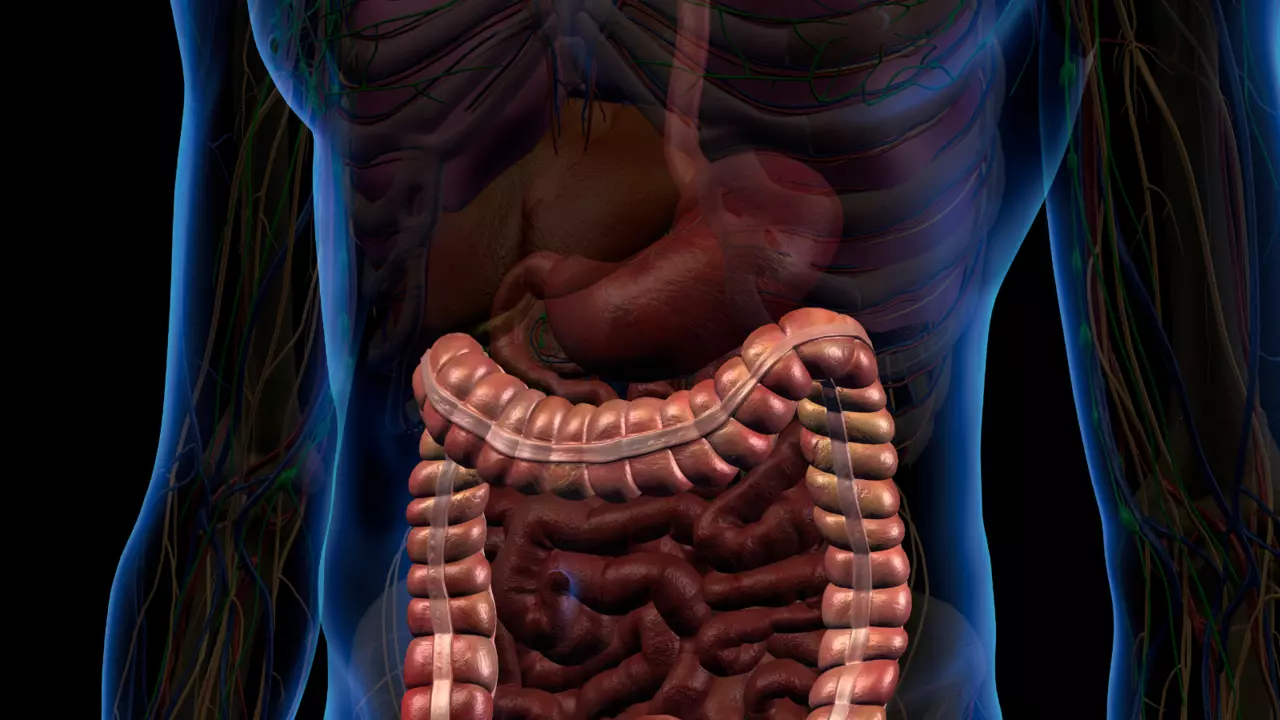No evidence for increased prevalence of colon cancer in Birt-Hogg-Dubé
3 Dec 2023
Jim was diagnosed with Birt-Hogg-Dubé syndrome (BHD) in 2005. He has a medical history of pneumothoraces (the first of which occurred at the age of 13), fibrofolliculomas and a family history of colon cancer. His mother, also believed to be a carrier of the mutated folliculin gene, was diagnosed with colon cancer in her 60’s. Many people wonder whether BHD is associated with colon cancer and whether BHD patients such as Jim should be screened regularly.
There have been multiple cases of colon cancer reported in BHD patients, however a link between the two has never been established. Previous studies have not included a large enough number of patients to be able to make conclusions. A recent study in the Netherlands compared a cohort of 399 BHD patients with 382 family members who did not have a folliculin mutation, to try and answer this question and to ensure patients with BHD are receiving the correct screening(1).
We spoke to Dr Arjan Houweling and Dr Irma van de Beek at the University at Amsterdam University Medical Centre about their research.
What prompted you to initiate this research?
Patients with an inherited form of cancer are often interested in the risk for other types of cancer. Patients with Birt-Hogg-Dubé syndrome are at a significantly increased risk for kidney cancer, but less information is available about other types of cancer. In one of the earliest publications on BHD, one of the patients also suffered from colon polyps(2). Colon polyps are benign, but can be a precursor for colon cancer. Following that early publication, many patients with both BHD and colon cancer have been reported. However, it was not clear whether these occurred together accidentally or whether they were really related to each other. This can only be assessed by studying larger groups of patients with BHD. One study from 2002 by Zbar and colleagues did not find significantly more colon polyps and colon cancer in patients with BHD compared to family members without BHD (3). However, even after publication of this study clinicians apparently were still not completely convinced, since colon screening for BHD patients was still advised in several guidelines. We hoped to gather more information about risks for colon polyps and colon cancer in patients with BHD, so we could adjust our guidelines if necessary.
What did you find out?
We compared data from the Dutch national pathology database between two groups: 399 patients with BHD and 382 of their family members without BHD. There was no significant difference between the number of colon cancers that had occurred in both groups. There were significantly more patients with BHD who had had removal of colon polyps. We did anticipate this, since a part of the BHD patients was advised to undergo colon surveillance based on their BHD diagnosis, while their family members without BHD do not undergo colon surveillance. Since colon polyps are common in middle- and older-aged individuals, it was to be expected that more BHD patients had colon polyps removed. Analyzing these polyps in more detail, there was no significant difference between the two groups in the median number of polyps per individual, the location of the polyps, the subtype of the polyps and the number of advanced polyps.
Our study had some limitations. We anonymized all patient records, therefore we could not be sure whether all extra detected polyps in patients with BHD were actually the result of extra colon surveillance. Furthermore, the removal of colon polyps may prevent the development of colon cancer. The extra surveillance in patients with BHD might therefore have led to a lower number of BHD patients with colon cancer. Despite these limitations, we believe that our data are a clear indication that the risk for colon polyps and cancer in patients with BHD is low, in line with the observations by Zbar et al(3).
What message would you give to BHD patients who are concerned about developing colon cancer?
There is no evidence for an increased risk for colon polyps or colon cancer in BHD. Even if the risk is increased, it is probably only slightly increased and does not need extra surveillance based on current knowledge. Most countries offer population screening for colon cancer, which should be sufficient for patients with BHD.
Altogether this study suggests that the risk of developing colorectal cancer if you have BHD is not significantly different from the general population and that additional colon screening is not required.
The BHD Foundation sincerely thanks Dr Arjan Houweling and Dr Irma van de Beek for taking part in this interview and sharing their insights on the study. In addition, thank you to Jim Laycock, member of the BHD community for sharing his background and contributing to this blog.
Read the freely available research article here.
References
- Van de Beek I, Glykofridis IE, Wolthuis RMF, Gille HJJP, Johannesma PC, Meijers-Heijboer HEJ, et al. No evidence for increased prevalence of colorectal carcinoma in 399 Dutch patients with Birt-Hogg-Dubé syndrome. Br J Cancer [Internet]. 2020 Feb 18 [cited 2021 Apr 27];122(4):590–4. Available from: https://doi.org/10.1038/s41416-019-0693-1
- Hornstein OP, Knickenberg M. Perifollicular fibromatosis cutis with polyps of the colon-a cutaneo-intestinal syndrome sui generis. Arch Dermatological Res [Internet]. 1975 Jan [cited 2021 Apr 27];253(2):161–75. Available from: https://pubmed.ncbi.nlm.nih.gov/1200700/
- Zbar B, Alvord WG, Glenn G, Turner M, Pavlovich CP, Schmidt L, et al. Risk of renal and colonic neoplasms and spontaneous pneumothorax pneurnothorax in the Birt-Hogg-Dubé syndrome. Cancer Epidemiol Biomarkers Prev [Internet]. 2002 Apr 1 [cited 2021 Apr 27];11(4):393–400. Available from: http://intl-cebp.aacrjournals.org/cgi/content/full/11/4/393
